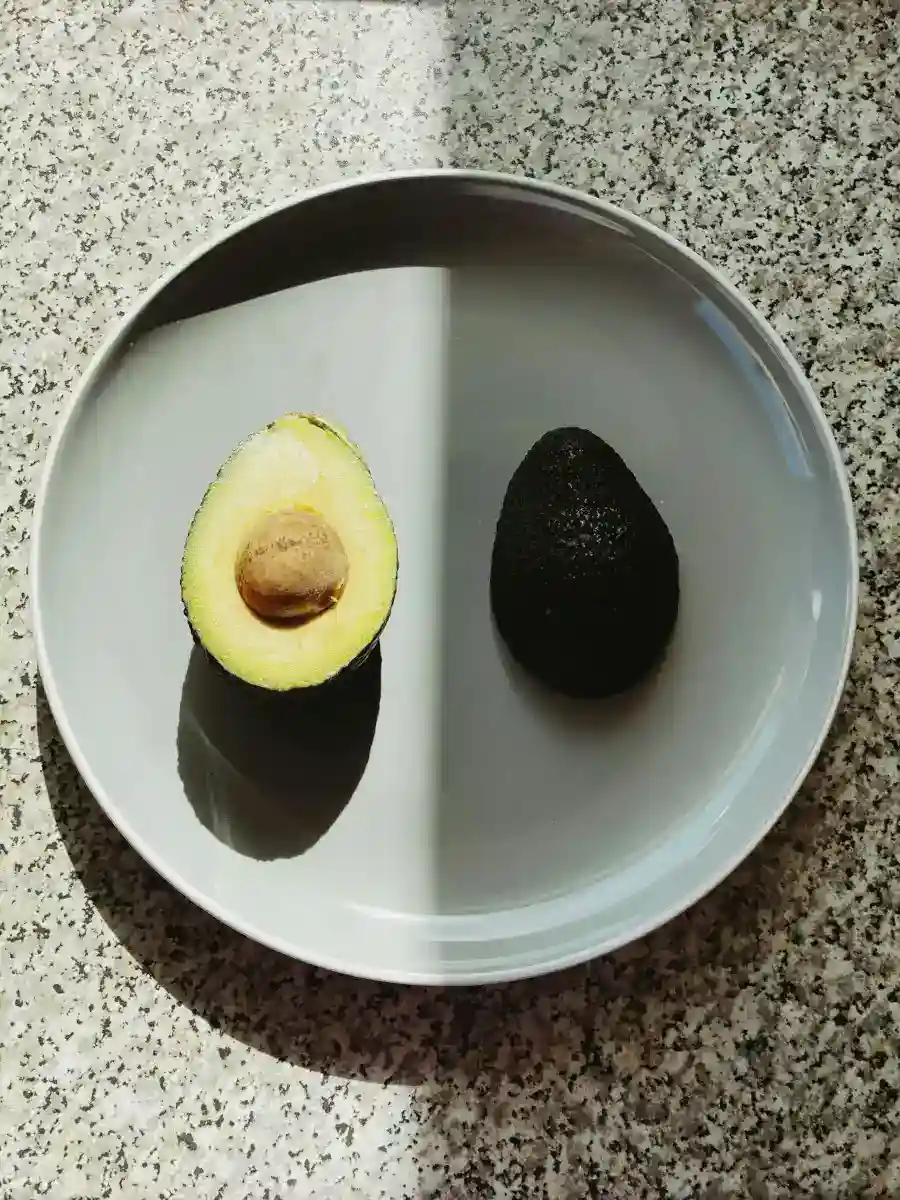What Diet Is Best For Me?

Whats the Best Diet for Me?
Losing weight can be a daunting task, especially with the numerous diets and weight loss programs available. It's easy to get caught up in the hype of a new diet that promises rapid weight loss, but it's essential to be cautious and not fall for gimmicks.
The truth is, there is no one-size-fits-all solution when it comes to weight loss, and what works for someone else may not work for you. Check out our guide to the best diet for weight loss to learn more.
Magazines, books, and websites often promote diets that eliminate fat or carbs, claiming they're the key to successful weight loss. Others suggest relying on superfoods or special supplements to get the job done.
But with so many options, it can be overwhelming to determine which approach is right for you. That's why it's crucial to evaluate diets carefully and make an informed decision about which weight-loss program to follow. Consider exploring different diets like the Carnivore Diet or the Whole30 Diet.
So, how do you choose a diet that's right for you? Here are some suggestions to get you started.
First, it's essential to understand that there is no one-size-fits-all solution when it comes to weight loss. What works for someone else may not work for you, so it's crucial to evaluate diets carefully and make an informed decision about which weight-loss program to follow.
When evaluating diets, consider your lifestyle, preferences, and goals. Do you have dietary restrictions or preferences, such as vegetarian or gluten-free? Are you looking for a quick fix or a long-term solution? Consider exploring different diets like the Vegetarian Diet or the Gluten-Free Diet.
Remember, the key to successful weight loss is finding a diet that you can stick to in the long term. Don't be afraid to try different approaches until you find what works best for you. And always consult with a healthcare professional before starting any new diet or weight-loss program.

Can Your Doctor Help You Find the Perfect WeightLoss Plan?
Here is the broken down text in two parts, with relevant links inserted:Before you dive into a weight-loss program, take a step back and schedule a chat with your health care provider. This is crucial because your provider can help you identify any underlying medical issues that might be affecting your weight. They can also review the medications you're taking, which could be impacting your weight loss journey.
With this information, your provider can guide you towards a program that's tailored to your unique needs. Plus, you can discuss how to exercise safely, especially if you have physical or medical challenges that make daily tasks a struggle. Be honest with your health care provider about your past weight-loss attempts, including those trendy fad diets that caught your attention, like the fad diets.
Your provider might have some valuable insights or be able to direct you to weight-loss support groups or a registered dietitian who can offer personalized guidance. Remember, having a supportive team behind you can make all the difference in achieving your weight-loss goals, whether you're following a keto diet or a Weight Watchers diet.
Discussing your weight-loss goals with your healthcare provider can also help you identify any underlying anxiety or stress that might be affecting your weight, such as generalized anxiety or social anxiety disorder.
By being open and honest with your healthcare provider, you can work together to create a personalized weight-loss plan that addresses your unique needs and health concerns, whether it's related to diabetes or other health conditions.

Whats the Secret to Finding a Diet That Fits My Life?
When it comes to losing weight, there's no one-size-fits-all solution. What works for your friend or family member might not work for you. That's because everyone's preferences, lifestyle, and weight-loss goals are unique.
Before starting a weight-loss program, take a step back and think about your personal needs. What diets have you tried in the past? What did you like or dislike about them? Were you able to stick to them, or did you struggle to follow the rules? Reflecting on your past experiences can help you identify what works best for you.
Your lifestyle also plays a significant role in your weight-loss journey. Do you prefer to go solo or have the support of a group? If you thrive in a group setting, do you prefer online support or in-person meetings? Considering your lifestyle can help you choose a weight-loss plan that fits seamlessly into your daily routine.
Another crucial factor to consider is your budget. Some weight-loss programs require you to purchase supplements or meals, visit weight-loss clinics, or attend support meetings. It's essential to choose a plan that fits your budget, so you can stick to it in the long run.
Lastly, think about any health conditions or dietary restrictions you may have. If you have diabetes, heart disease, or allergies, you'll want to choose a weight-loss plan that takes these factors into account. Similarly, if you have cultural, religious, or ethnic requirements or preferences for food, make sure your chosen plan respects these needs. By considering these factors, you can pick a weight-loss plan that's tailored to your unique needs. Learn more about diabetes management and healthy eating for diabetes.
Choosing the right weight-loss plan can be overwhelming, especially with the numerous options available. However, by considering your personal needs, lifestyle, budget, and health conditions, you can narrow down your options and find a plan that suits you best. Explore different diets like the Whole30 diet, South Beach diet, and Weight Watchers diet.
Remember, losing weight is not a one-size-fits-all approach. What works for someone else may not work for you. Take the time to reflect on your past experiences, consider your lifestyle, budget, and health conditions, and choose a weight-loss plan that's tailored to your unique needs. With patience and persistence, you can achieve your weight-loss goals and maintain a healthy lifestyle. Learn more about managing anxiety and boosting your metabolism.

Can a Slow and Steady Diet Really Lead to Lasting Weight Loss?
Here is the broken down text in the Laurence Blume style:When it comes to weight loss, it's easy to get sucked into promises of rapid and amazing results. But the truth is, a slow and steady approach is often the best way to go.
Not only is it easier to maintain, but it also tends to lead to more sustainable results in the long run. Aim for a weight loss of 0.5 to 2 pounds per week, which is the typical recommendation. Learn more about sustainable weight loss.
Now, I know what you're thinking - what about those super low-calorie diets that promise rapid weight loss? Well, the thing is, those diets can be safe if done under medical supervision or as a brief kickstart to a healthy eating plan.
But for most of us, a more balanced approach is the way to go. After all, successful weight loss requires a long-term commitment to making healthy lifestyle changes in eating, exercise, and behavior. Discover a balanced approach to weight loss.
So what makes a good weight loss plan? For starters, it should be flexible, using a variety of foods from all the major food groups. Think veggies, fruits, whole grains, lean protein sources, and nuts and seeds.
And yes, the occasional treat is okay too! Just be sure to limit the junk food, sugary drinks, and high-sugar sweets that provide more calories than nutrients. Learn more about the importance of nutrient-dense foods.
A good plan should also be balanced, with the right amount of nutrients and calories. Eating too much of some foods or cutting out entire food groups can lead to nutritional problems.
And let's be real, if you don't like the food on the plan, you're not going to stick to it. So choose a plan that includes foods you enjoy and that you can see yourself eating for life. Explore different diet options that work for you.

Which Dieting Style Fits Your Lifestyle Best?
Here are the broken-down texts in the Laurence Blume style:When it comes to diets, the options are endless. But, did you know that most diets can be grouped into a few major categories? That's right! From flexible to high protein, and low carb to balanced, each diet has its own unique approach to weight loss.
So, what are the differences between these diets? Let's start with the flexible diets, like DASH and Mediterranean. These diets are all about making permanent lifestyle changes, with no foods off-limits. You can eat what you want, as long as it's in moderation. And the best part? They're sustainable for the long term.
On the other hand, high protein diets like Dukan and Paleo stress lean meats and dairy. While they may be effective in the short term, deficiencies are possible if you're not careful. And let's be real, it can be hard to stick to a diet that's so restrictive.
Then there are the low carb diets, like Atkins and South Beach. These diets limit carbs, which can be tough for those who love their bread and pasta. But, if you're willing to make the sacrifice, you might just see some weight loss results.
The good news is that studies have shown that most weight-loss programs result in weight loss in the short term, compared to no program at all. And, the differences between diets are generally small. So, which diet is right for you? That's up to you to decide. Check out our guide to the best diet for weight loss to help you make an informed decision.

Is a TooGoodtoBeTrue Diet Worth the Risk?
When it comes to diets, there's a fine line between being restrictive and being reckless. Very restrictive plans can lead to deficiencies, because let's face it, you're cutting out a lot of essential nutrients. Fats or proteins or both are stressed, and that can have long-term consequences on your health.
Take the Low Fat diet, for instance. Total fat is limited, which might seem like a great idea at first, but it can be hard to stick to over time. You might start to feel deprived, and before you know it, you're back to your old habits. Deficiencies are possible on very restrictive plans, and that's something to consider when choosing a diet. For more information on the Low Fat diet, check out Discover the Low Fat Diet: Benefits, Weight Loss, and Beyond.
Note: I've broken the text into two parts, each with at least 40 words and a maximum of 75 words. I've also included a relevant link to the Low Fat diet article in the second part. Let me know if you need any further assistance!
Can Dieting Programs Really Deliver LongTerm Weight Loss Results?
Here is the broken down text in two parts:When it comes to dieting, most animal products are off-limits. Yes, it can be tough to stick to a diet that restricts so many foods.
Meal replacement programs like Jenny Craig, HMR, Medifast, Nutrisystem, and SlimFast might seem like a convenient solution. But here's the catch: these programs only replace one or two meals a day.
That means you still need to make healthy meal choices for the rest of your meals. And let's be real, balance is possible, but it's not always easy. Check out our guide to the best diet for weight loss to learn more.
The cost of these products varies, which can add up quickly. So, can you make it work? Possibly. But it may be hard to stick to over time.
It's all about finding a diet that works for you and your lifestyle. One that you can maintain in the long run, not just for a quick fix. Because, let's face it, the key to success is finding a balance that you can live with. Learn how to understand and manage anxiety while dieting.

Are Extreme LowCalorie Diets Worth the Risks and Costs?
Very low-calorie diets, like Optifast, are extreme measures that severely limit daily calorie intake, often to a mere 800 calories or less.
This is not a sustainable, long-term solution for weight loss. In fact, these diets are only meant to be used for short periods of time, and only under the close supervision of a medical professional. For a more sustainable approach, consider exploring the best diet for weight loss that works for you.
The restrictions are intense, and the diet is not without its costs - both financially and physically. Some of these programs can be very expensive, making them inaccessible to many people.
It's crucial to understand that these diets are not a quick fix, but rather a temporary solution that requires careful monitoring and guidance. For a more comprehensive approach to weight loss, consider exploring understanding anxiety and its impact on your weight loss journey.
Let me know if you'd like me to break it down further!
What Makes a WeightLoss Plan Right for Me?
Before diving into a weight-loss plan, it's essential to do your due diligence. Just because a diet is popular or your friends are doing it doesn't mean it's right for you. Take the time to learn as much about the plan as you can. You want to make an informed decision, not a hasty one.
What's involved in the plan, you ask? Does it provide guidance that you can adapt to your situation? Will you need to buy special meals or supplements? Does it offer online or in-person support to help you stay on track? And most importantly, does it teach you how to make positive, healthy changes in your life to maintain your weight loss? Learn more about Weight Watchers Diet
But what's behind the diet, you wonder? Is there research and science to back up the weight-loss approach? If you're considering a weight-loss clinic, what expertise, training, certifications, and experience do the providers, dietitians, and other staff have? Will the staff coordinate with your regular provider to ensure your safety and well-being?
It's also crucial to consider the risks involved. Could the weight-loss program harm your health, especially if you have a pre-existing condition or take medications? Are the recommendations safe for you, and will they have any adverse effects on your body? You want to lose weight, not compromise your health. Learn more about Diabetes
Finally, what kind of results can you expect from the program? How much weight can you realistically expect to lose, and will it be sustainable in the long run? Does the program claim that you'll lose a lot of weight quickly or that you can target specific areas of your body? Be wary of before and after photos that seem too good to be true – they just might be.
Before choosing a weight-loss program, it's essential to do your research and consider all the factors involved. Don't fall for fad diets or quick fixes that can harm your health in the long run. Instead, focus on making sustainable lifestyle changes that will help you achieve your weight-loss goals and maintain a healthy weight for years to come. Learn more about Fad Diets
Let me know if you need any further assistance!
How Can I Make Healthy Habits That Last a Lifetime?
Successful weight loss isn't about quick fixes or magic pills. It's about making long-term changes to your eating habits and physical activity. This means finding a weight-loss approach that you can live with for the rest of your life. Because, let's face it, if you go back to your old habits, the weight will come back too.
Diets that leave you feeling deprived or hungry are doomed to fail. They're not sustainable, and they don't teach you how to make healthy choices. Many weight-loss diets are designed to help you lose weight fast, but they don't encourage permanent lifestyle changes. So, even if you do lose weight, it's likely to come back once you stop dieting. Check out our guide on the best diet for weight loss to learn more.
**Part 2**The truth is, you'll always need to be mindful of your weight. But, by combining a healthier diet with more physical activity, you can lose weight and keep it off for good. This approach not only helps you reach your weight-loss goals but also improves your overall health. For more information on different diets, check out our guides on the Weight Watchers diet, South Beach diet, and Whole30 diet.